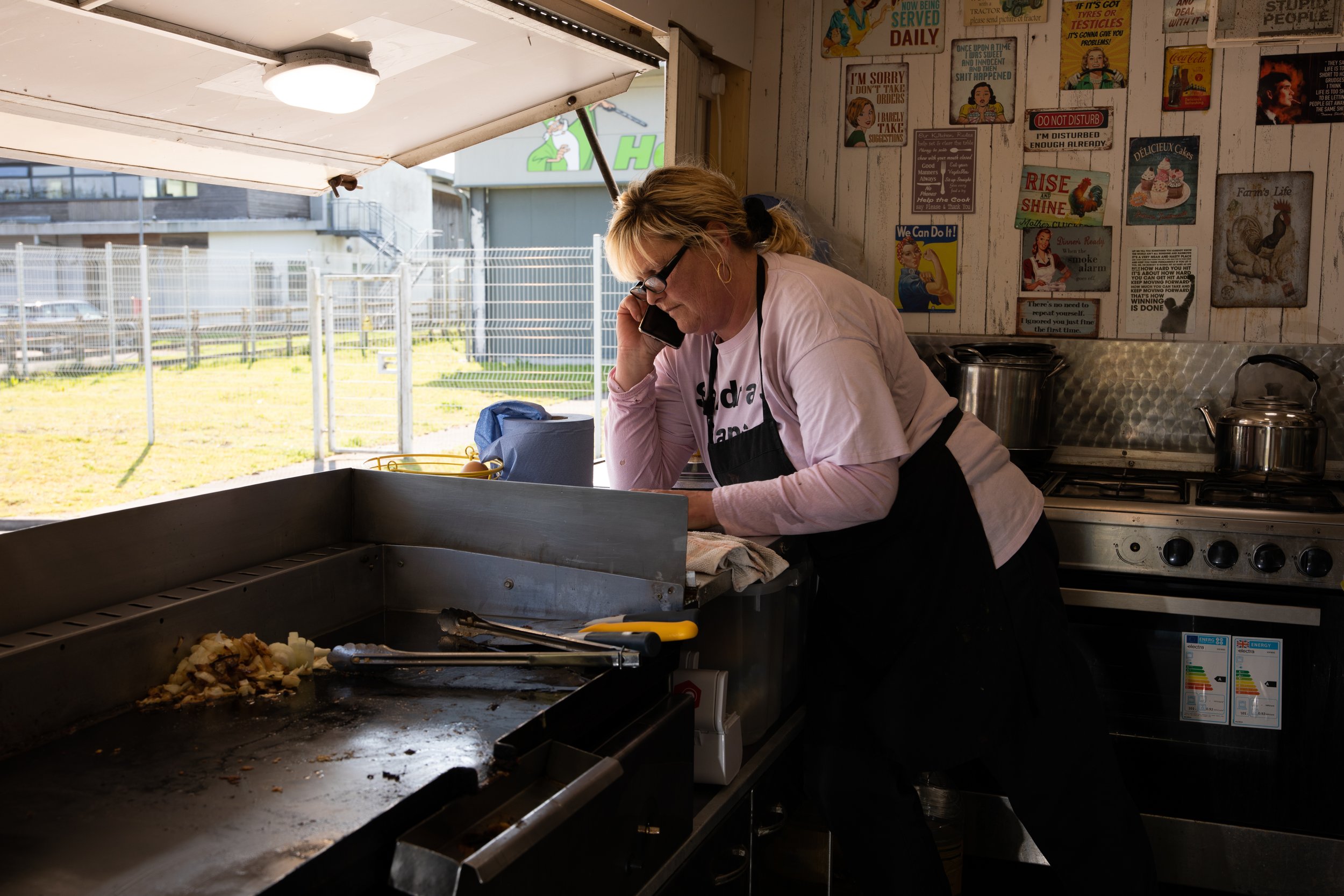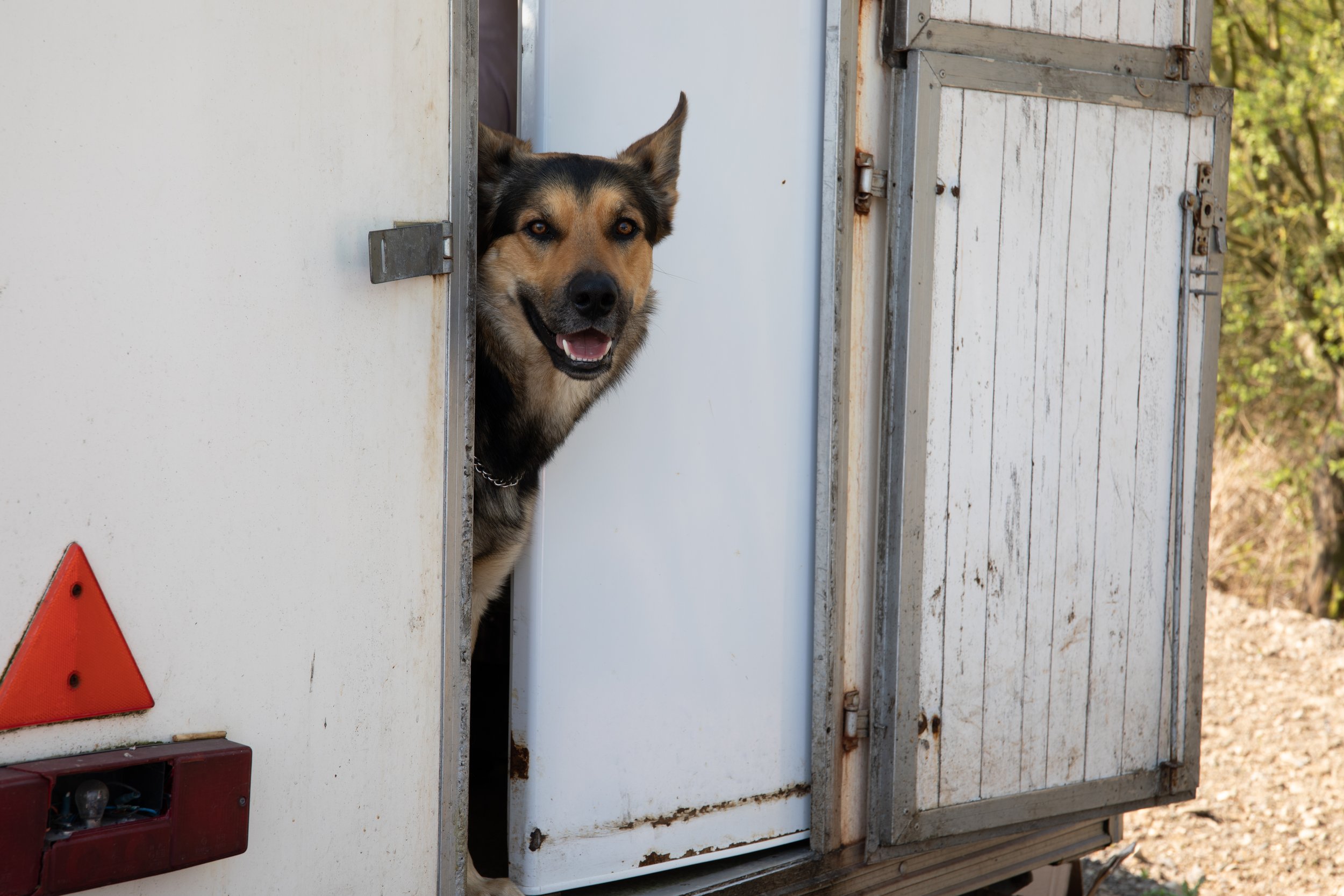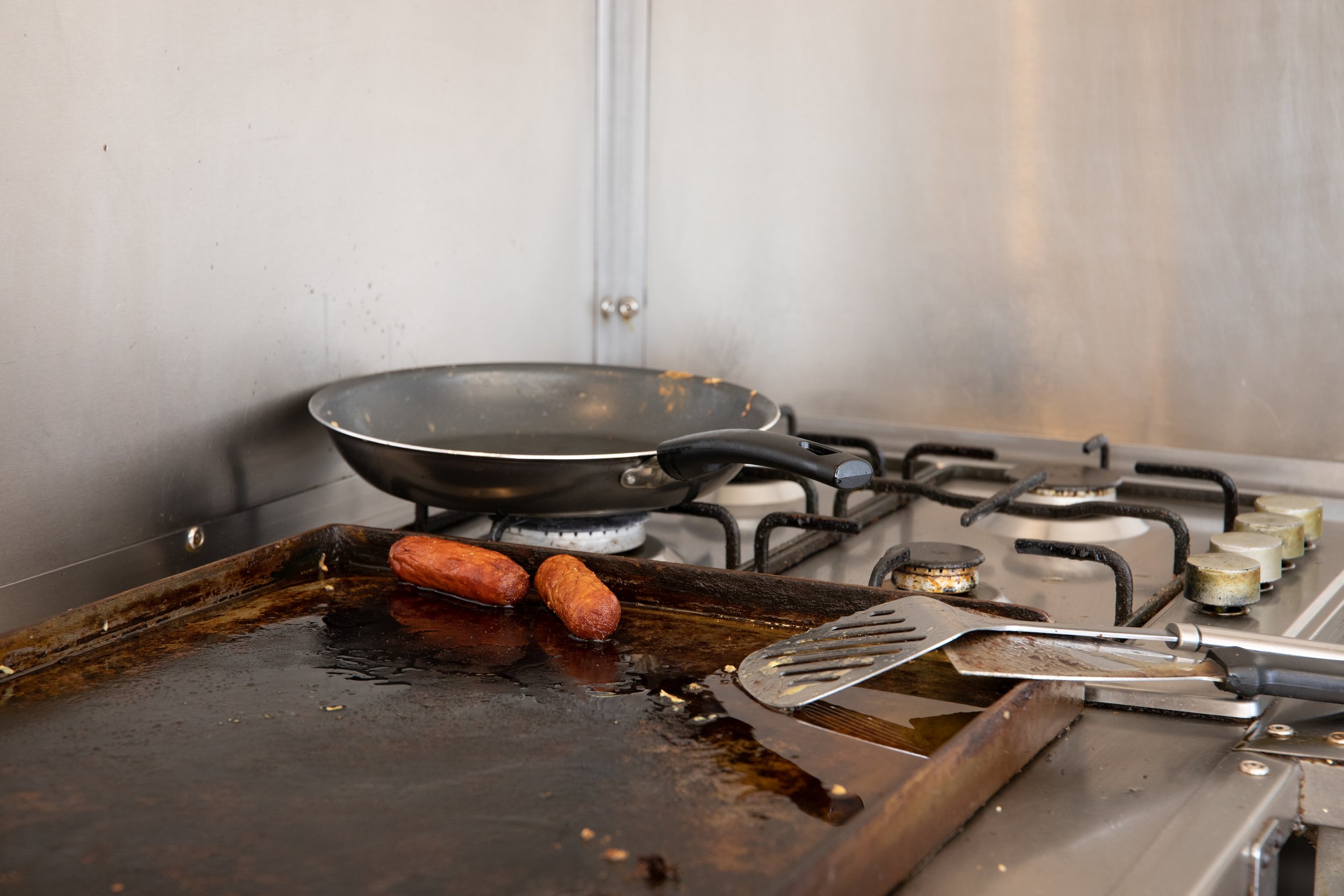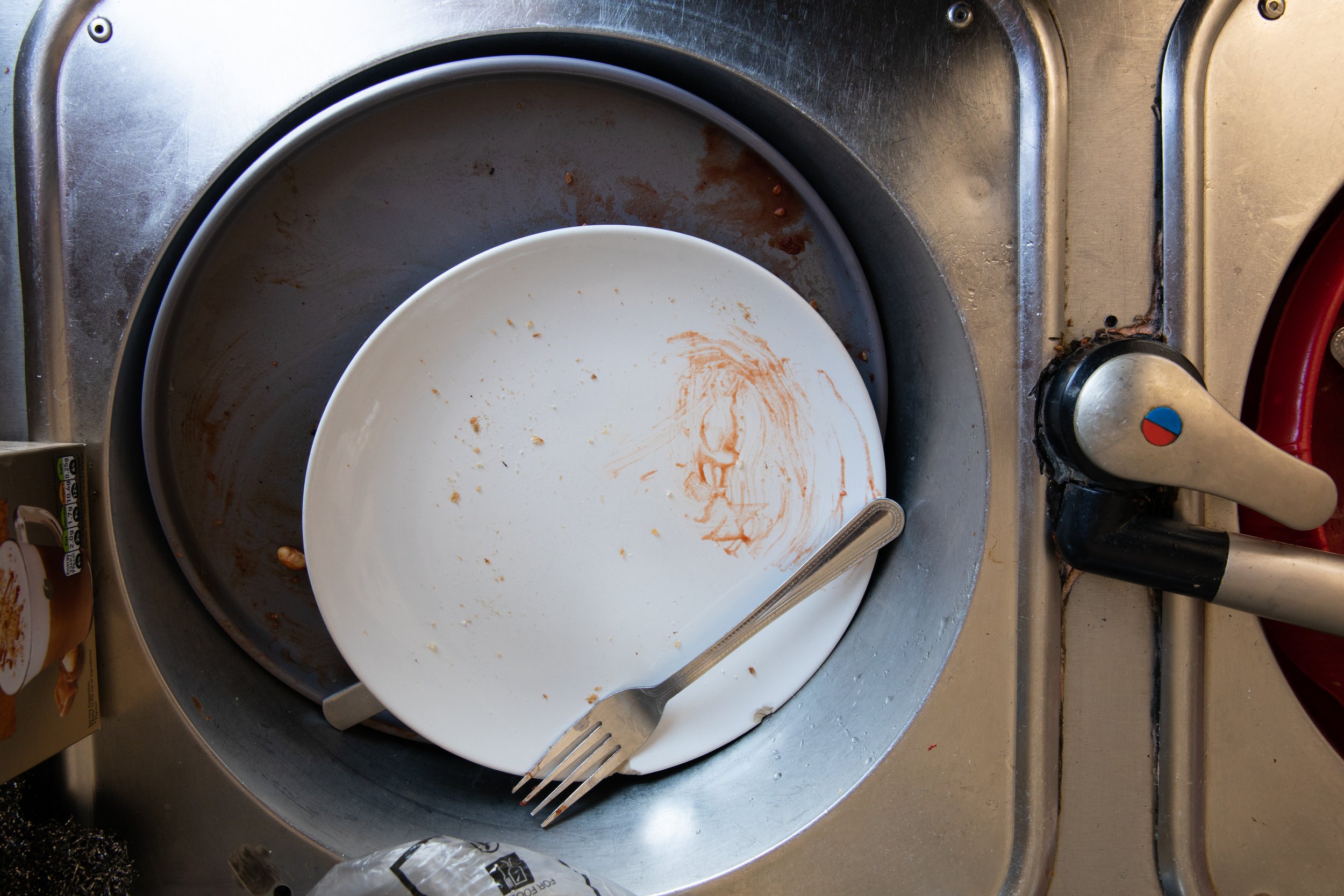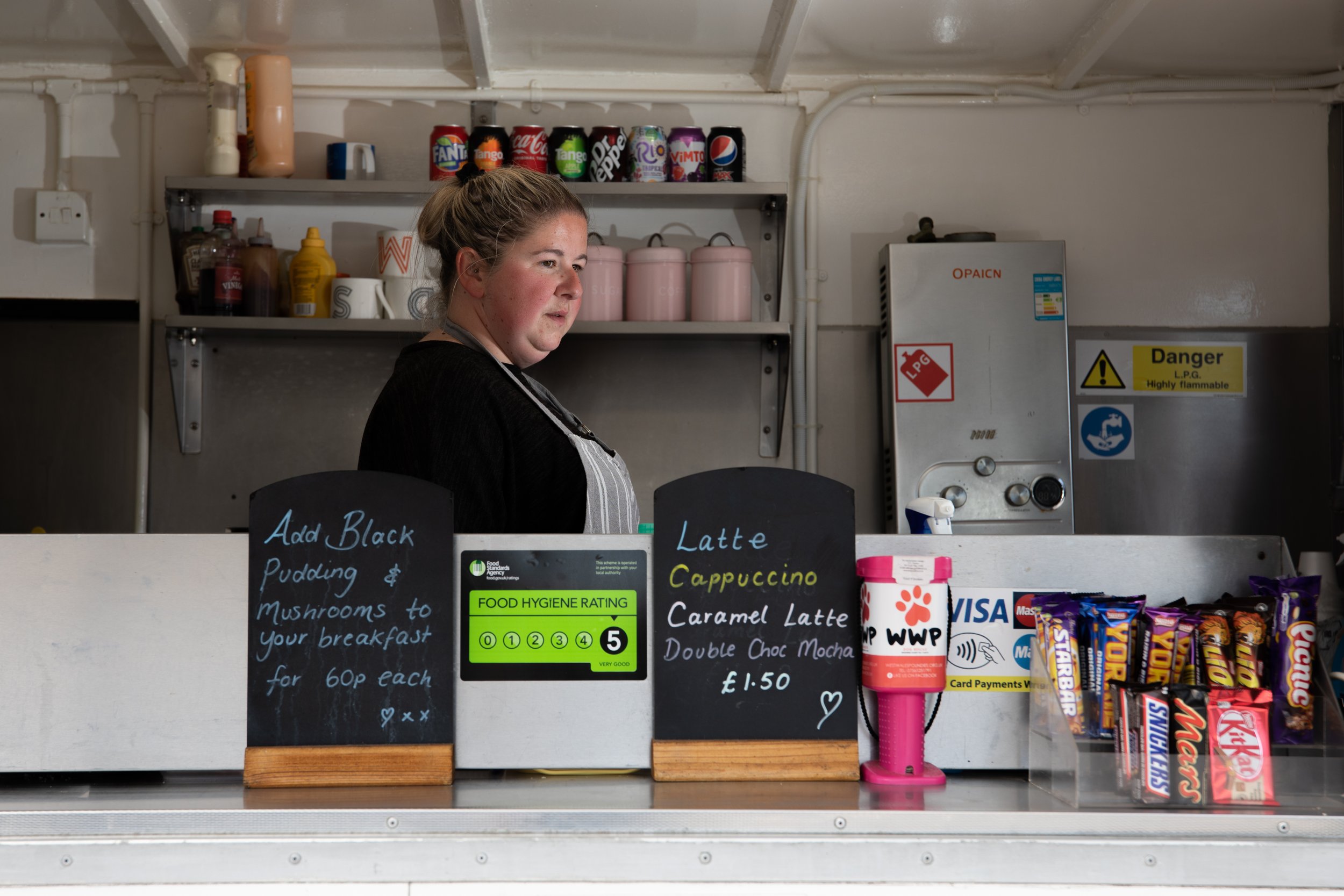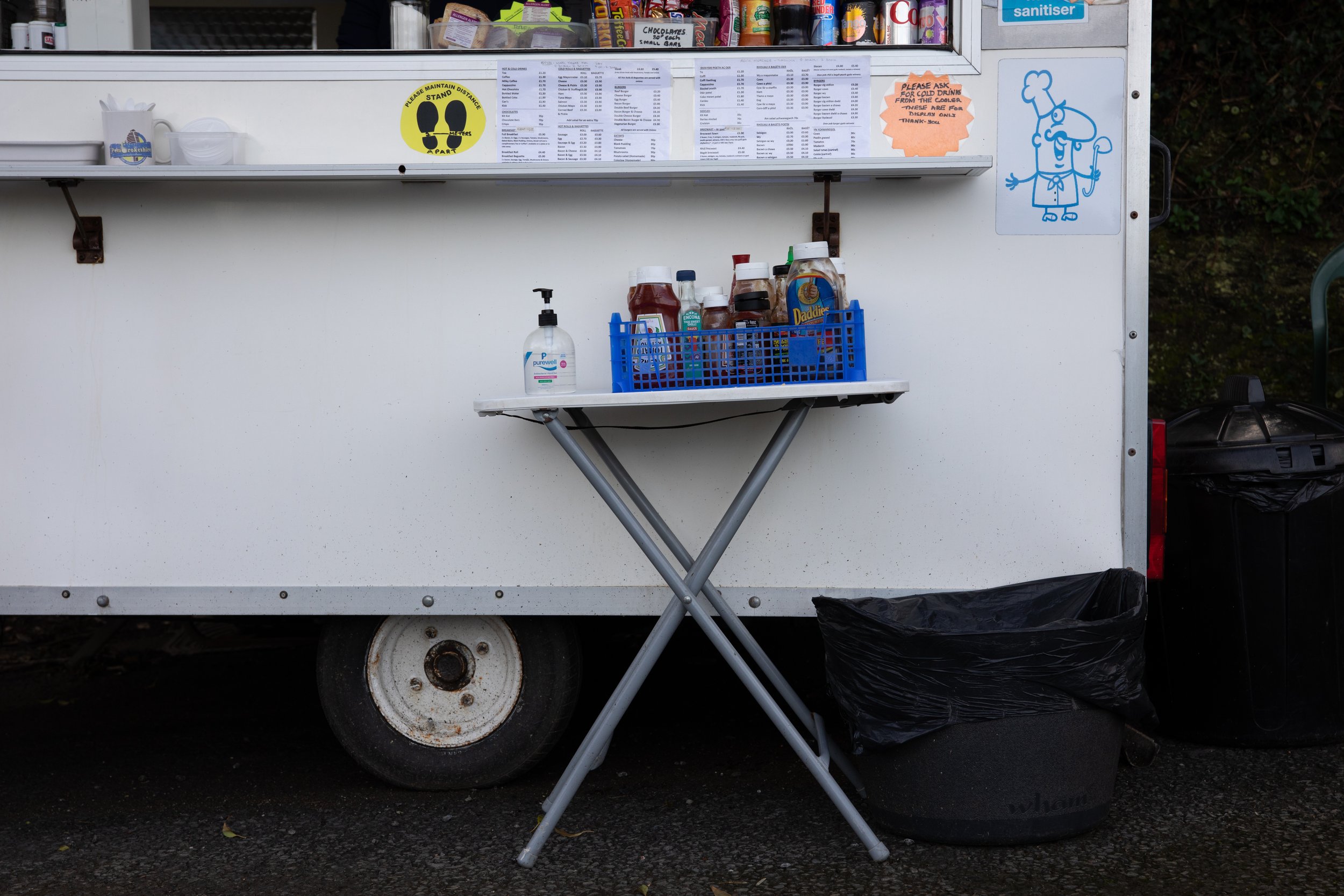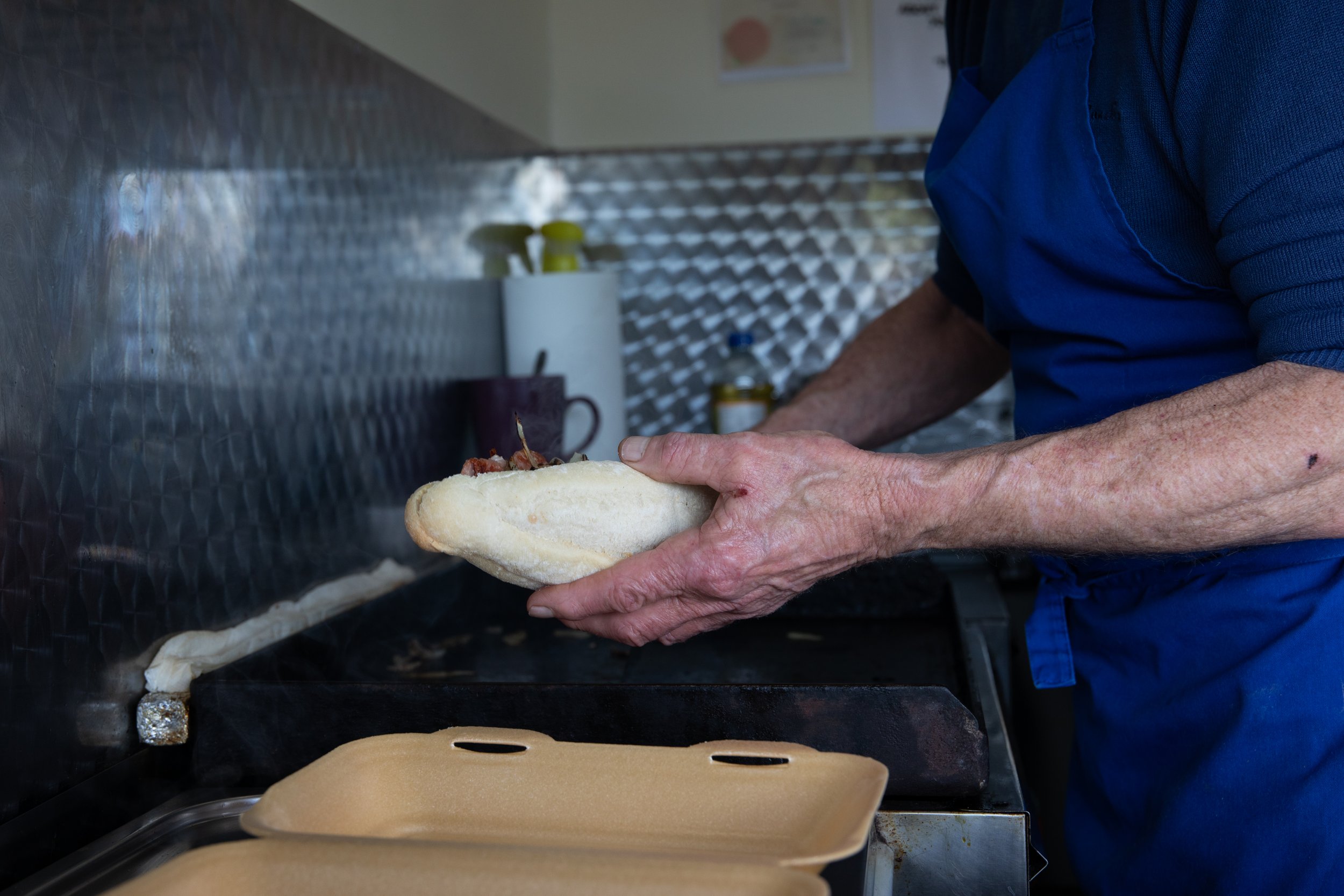
Food Vans
Food vans tells the story of food vans and the people who own them. The idea grew out of my Night Life series which sparked a number of mini road trips around West Wales in search of old petrol pumps. I had always been intrigued by a food van that operates from a layby just outside my home town of Newport, Pembs. It seems such an unlikely location to be successful. Whilst on these petrol pump seeking trips, I started to notice more of these food vans and was struck by their individuality and I wanted to document them.
One important distinction was that it wasn’t the artisan, gourmet food trucks I was after but the vans and trailers that serve breakfast baps, cups of sugary tea and burgers in laybys and at the side of the road. The individuality and personality contrasts so strongly with the homogenous, soulless service station of the motorway and I wanted to show that in my photographs.
Street food dates back to the Roman era where street food was one of the main ways that the lower classes survived. Many of the citizens didn’t have kitchens and therefore relied on street vendors as their main food source. The only remains of the food they sold that has been found is oyster shells. Moving into medieval times, oysters were still a favourite but another fare was sheep’s feet and the introduction of pies as a portable food stuff. The Victorians took it to a whole new level introducing whelks, cockles and hot eels and the idea of a ‘snack’ was introduced..
The sight of a roadside truck pitched up at the side of an A-road for many brings back memories of long road trips with a stop off en-route for a juicy burger.
Historically, the roadside is where all mobile caterers used to operate. In the 1990s there were 10 units operating on the A34 along the stretch from the M42 to Oxford, open 24/7 and they were goldmines. This model was mirrored up and down the country and at one point there were over 1,200 Mobile Caterers operating on Britain’s roads.
The number of roadside pitches across the UK has significantly reduced as councils have used the Local Government Miscellaneous Provisions Act to close down many, as they believed that that roadside units were causing a traffic hazard, and feared that some members of the public were dodging traffic just to get a cup of tea!
Some local authorities have completely banned roadside pitches and street trading, others have restricted where the pitches are available, pushing them from busy A-roads and town centres out to trading and industrial estates. Roadside catering units are far less prevalent now than in previous years.
There is more competition to stand out and less places to trade from but there are still a number traditional Mobile Caterers operating on Britain’s roads, industrial estates and retail parks today.
Sandra’s baps.
Sandra talks about her business.

